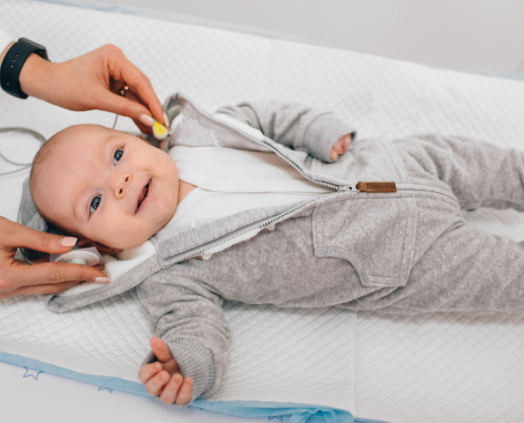
Hearing loss is the one of most common congenital anomalies reporting almost 2-4 per 1000 infants. As Early the hearing loss is detected, easier and effective is the intervention. Universal newborn screening has been mandated by legislature in most of the developed world. This involves a mandatory hearing screening of newborn baby’s hearing before leaving the hospital.
If a baby is found not to have passed hearing screening, child will be referred for a detailed diagnostic evaluation of hearing. If hearing loss is found an effective rehabilitation plan will be recommended and therapeutic services are initiated to help the baby to overcome difficulties in communication.
JCIH, joint commission of infant hearing recommends 1-3-6 rule which states that any newborn should be
Hearing tests carried out in newborn hearing screening. NBS is not a single test, rather it is a combination of multiple tests, test battery. It involves both subjective and objectives measures.
The need of hearing screening becomes more important when child or mother has any significant history during and soon after the pregnancy, i.e. Any High-Risk Register (HRR) such as Neonatal jaundice, premature delivery, malnutrition, history of miscarriages, high fever, infections, caesarean or assisted, late pregnancy etc. Results from all these tests are taken into consideration before arriving to conclusion. This test battery has been found to be more precise in screening-assessing hearing disorders in children.
Even if the child passes newborn hearing screening one should watch for possible signs of hearing impairment. This will help you to rule out the possibilities of late onset hearing loss (LOHL). Look for these signs as the child grows,
Time is the key to successful rehabilitation. Earlier the detection and intervention better arethe outcome. Thus, maximizing the potential of affected child to be included in mainstream society. Consult our audiologists for more information about screening and if you think your child has any difficulties.